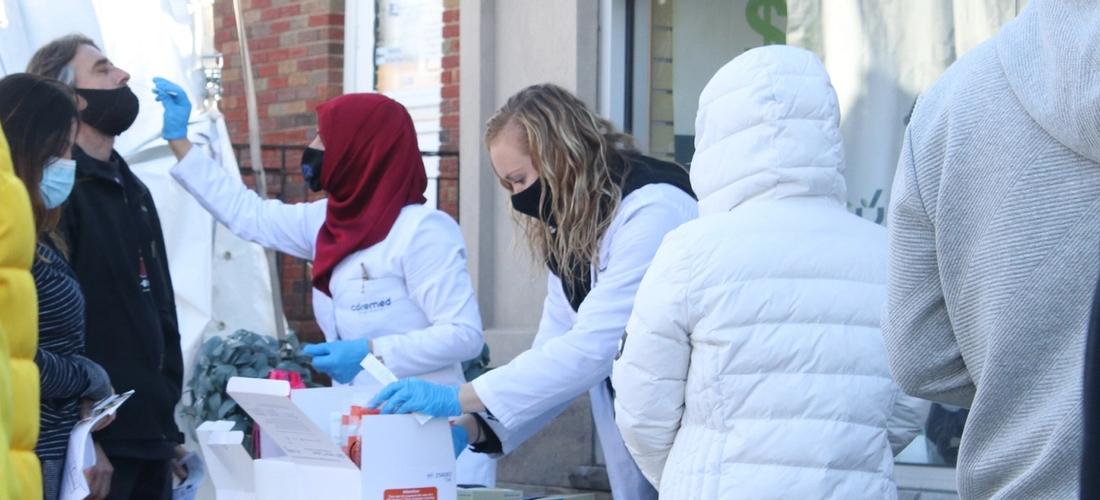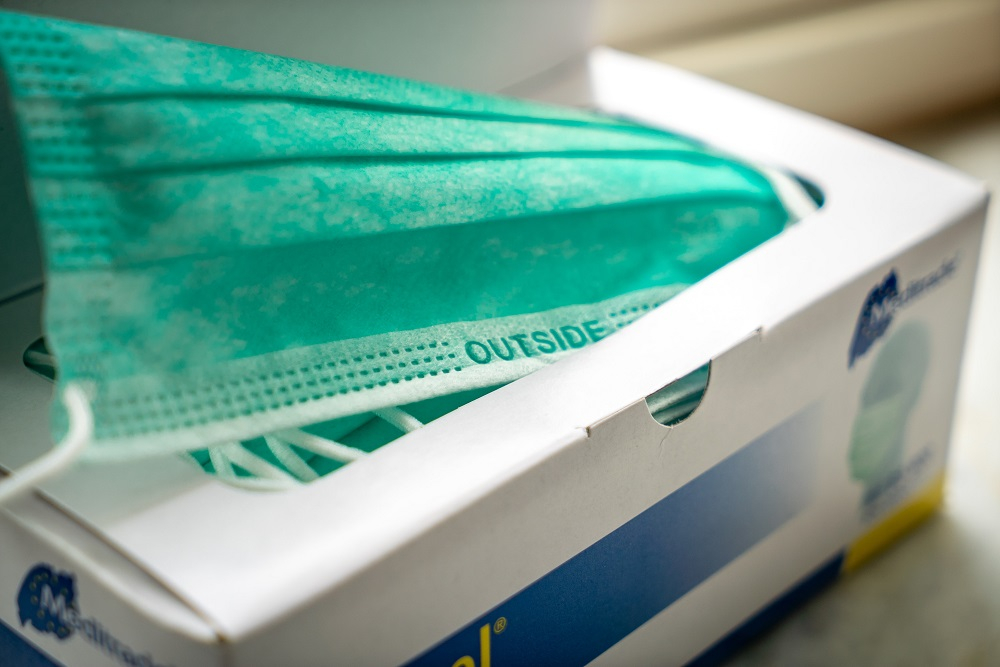The Year of COVID: What We Now Know, Vaccines and Quarantine Fatigue
Current Events
|
Dec 28, 2020
|
6 MIN READ

Photo by Jakayla Toney on Unsplash
For many people, 2020 will remain the Year of COVID. The virus ravaged lives and changed the way everyone lives. Around the world, people watched as the disease spread from Wuhan, China, crossing borders and shores.
In the U.S., the Center for Disease Control confirmed the first case of COVID-19 (coronavirus) on January 20th, and the country has since never been the same. The pandemic crippled our ill-prepared healthcare system and wreaked emotional devastation through mandated social distancing and self-quarantines. Misconceptions and misinformation about the virus spread, generating skirmishes between government officials on the news. Anti-maskers politicized this protective health precaution by protesting the masks in public. People decry and flout mask-wearing on social media and in real life to this day.
The most recent episode of COVID contention involves the government-authorized use of two new vaccines produced by the drug companies Moderna and Pfizer-BioNTech. While many cheer this as a step toward stemming the tide of COVID-19 infections, others are wary about vaccines and drug companies for a variety of reasons, generating a ton of questions and conspiracy theories.
Fear of unchecked spread of COVID-19 coupled with anxiety around the vaccination and uncertainty about the permanence of some changes caused by the disease is a lot to sift through. I wrote about the pandemic when it took hold in the U.S. back in March, but so much has changed since then. So, I spoke with infectious disease specialist Dr. Aneesa Afroze for the latest information you need to know. She gave some perspective about how what is known about COVID-19 has changed, the roles of new vaccines in reducing the viral spread and what COVID life may be like going into the new year.
We Now Know More
When it first hit the United States, medical professionals knew little about COVID-19, a new virus to the human population. New is always scary, especially when something is trying to kill or seriously harm us, and medical professionals and scientists are charged with keeping it from decimating humanity. Dr. Aneesa describes how the need for increased knowledge about COVID-19 and awareness on ways to protect the general population evolved over time.

Dr. Aneesa Afroze
“Initially, there was a lack of awareness around the world,” she explains. “When people became more aware, many shrugged off [COVID-19] like it was a common cold, but it was not.
“We have learned, after a year into the pandemic, how important it is to practice preventive measures.”
Dr. Aneesa says that our country’s healthcare systems are now better prepared to test, diagnose and treat patients as compared to when this first began. Though the virus is surging, threatening and overwhelming hospital systems around the country, there is the power of knowing the enemy better. “Since the virus has been in our communities, I think you can say that we are better equipped. Now we know how to arrange [facilities]. [When there is] a surge, [a hospital may] close down ICU units and make COVID floors. As the numbers go down, [ICU units] open back up.
“We can take action quickly now because we know what to do. If we have 50 [or] a 100 patients tomorrow, we know what to do. We have [improved] diagnostics [and] understand [COVID] a little better. We were navigating uncharted waters, [but] have come a long way and know more about the virus.”
While medical treatment of COVID has advanced since the pandemic first hit, preventative measures in the community to stem the spread of COVID and thus not cripple hospital systems has been an even bigger problem.
COVID is Staying
There is no denying the traumatic impact of COVID-19, but is it here to stay, affecting our lives for the unforeseeable future? Dr. Aneesa explains that while the disease will remain in our social consciousness, there may be light at the end of the tunnel.
“I don’t think anyone will ever forget the devastation this virus caused or say it’s just another influenza virus,” she says. “I do not think we can say it will go away. What we should [hope] for is, just like any other disease that persists in human society, [COVID-19] will be [something] that we can manage. We won’t see as [many] people dying from it.”
She adds that people may have lost their initial zeal for taking precautions and staying home over the summer, but they should stay the course.
“By the time we knew we were in a hole back in May, June and July, people and communities took practicing good hygiene and preventive measures [seriously]. We saw a dip at that time, but I think that after [over ten] months in this pandemic, people are tired. They are letting down their guards. They [feel they] just can’t wear a mask anymore [or never wanted to in the first place]. But we (medical professionals) are all tired. We wear special surgical masks all day. I feel that the common population should realize what healthcare workers are sacrificing and perhaps that will [motivate them to] do their part.”
She advises that we should all resist the strain and fatigue that comes from taking protective measures against the virus and do whatever is necessary to protect lives.
Trust the Vaccine?
I watched a surge of social media posts about distrusting COVID-19 vaccinations before drug companies even released it. There is an overarching allergy to vaccination in our country for a variety of reasons (conspiracy theories, anti-vaxxer rhetoric, historical abuse in minority communities with vaccine testing, etc.), which makes mass inoculations against COVID-19 an uphill battle for healthcare professionals.
A common argument that frames COVID-19 vaccines as dangerous involves the speed of their development and availability. Many ask why scientists cannot produce a vaccine for viruses like HIV, which wreaked havoc for decades, but had a COVID vaccine at the ready in less than a year. Dr. Aneesa explains why it is easier to develop vaccines for some viruses and not others:

Image source: Mika Baumeister on Unsplash
“The reason why we are not able to develop a vaccine for HIV is that the virus mutates all the time,” she says. “You can’t replicate [a virus] with a rapidly changing genetic sequence. You can’t make a vaccine for that type of virus. Coronavirus is not as mutated.”
Dr. Aneesa explains that vaccination plays a pivotal role in decreasing the virus’ spread, which may lead to people returning to somewhat normal lives.
“When a vast majority of the population gets vaccinated,” she says, “then you won’t see as much transmission. You’ll see it dying down at some point, but it will linger in society for a bit. We will start to get numbers [of infection] that we can count on our fingers, hopefully.”
Dr. Aneesa does see the wearing of masks be part of our future but maybe not forever, if vaccines achieve the anticipated effects.
“Its masks until we can get the mass majority of the population vaccinated and have herd immunity,” she says.
Dr. Aneesa recently received her first COVID injection and says that it was relatively painless, and she has suffered no side effects.
I am old enough to know people disabled by polio and about infants born with developmental disabilities because their mothers contracted rubella during pregnancy. So, any hesitancy I may have about vaccinations is juxtaposed against the realities of devastating epidemics. In other words, my concerns about this vaccine are negated by knowing the devastating effects of this disease running rampant and unchecked. COVID-19 has a stranglehold on our society. While doubt about vaccines may be warranted, we should not dismiss their value.
We are at a crucial juncture right now, with vaccinations beginning while the number of deaths and people ill and contracting COVID-19 continues to surge. While COVID fatigue is real, the realities we are facing and living with by giving into this fatigue is devastating. At the very least, wearing masks must continue for the foreseeable future.
Subscribe to be the first to know about new product releases, styling ideas and more.
What products are you interested in?

